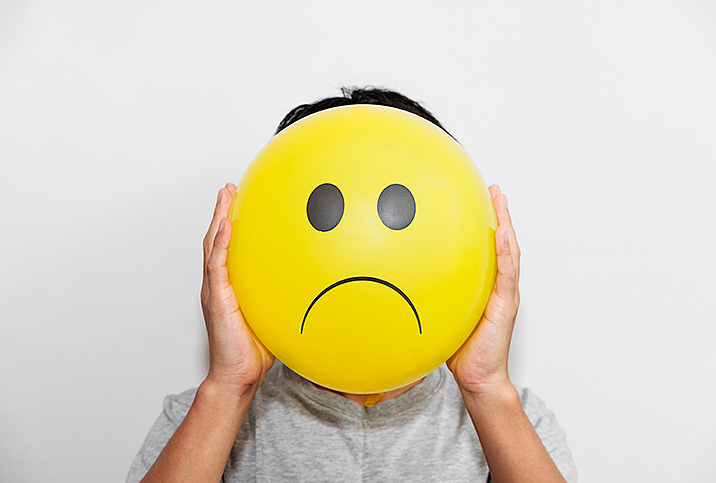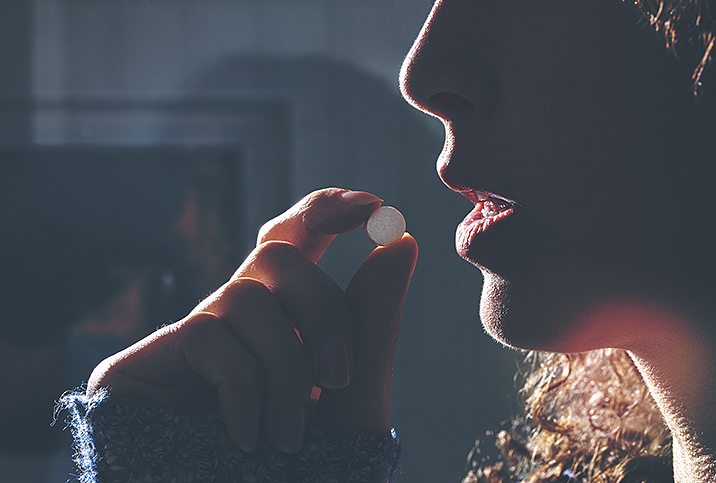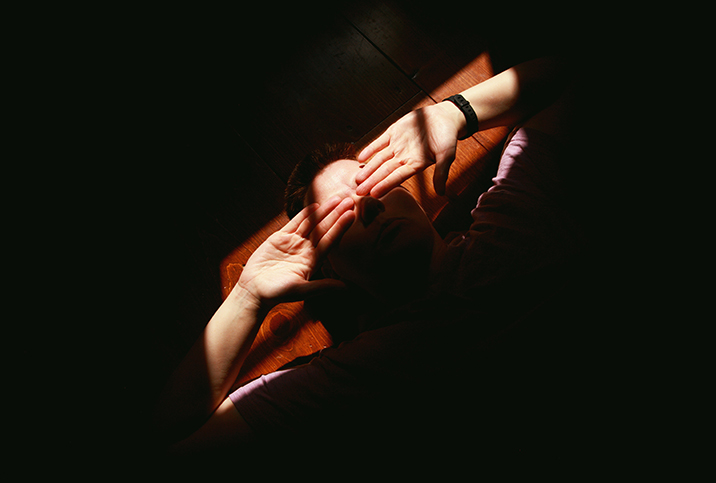Treating Treatment-Resistant Depression

In the United States, 3.8 million adolescents and 19.4 million adults struggle with depression. While it’s unclear how many sufferers seek treatment, it's been noted that primary care doctors fail to diagnose depression more than half of the time.
Of people who seek treatment, 40-60 percent will eventually respond to an antidepressant. However, the remainder could feel as if they’ll never find relief, which is known as treatment-resistant depression (TRD).
Different types of depression
Bradley Gaynes, M.D., director of the division of mental health at the University of North Carolina, has been studying depression for the past 20 years.
"Depression is a large category," Gaynes said. "There are lots of different types of depression, just like there are different types of infection."
The word depression is a placeholder to describe different disorders such as major depression, persistent depressive disorder, bipolar disorder and seasonal affective disorder. Depressive symptoms also coexist with several other mental disorders.
Because depression varies so widely, it’s important to recognize the need for a skilled diagnostician. Someone who knows what they’re doing can decipher what kind of depression someone has or if it’s a different mental disorder altogether.
"They’re just not all the same thing, but something we have learned is how hard it is to predict who’s going to respond to what," Gaynes said.
What is treatment-resistant depression?
TRD entails having tried at least two different types of solid treatment, and Gaynes defines solid treatment as "being an adequate trial of an antidepressant or a trial of one of the evidence-based talk therapies like cognitive behavioral therapy (CBT) or interpersonal psychotherapy (IPT)."
"It’s less important to pick the right type of medicine," Gaynes said. "It’s more important that whatever that is, you give it a full trial, and people are able to take it for 4-6 weeks at a moderate dose.”
If someone has a bad reaction to a medication in the first couple of weeks, it doesn’t count as a full trial. This same principle applies to therapy, as 50 percent of people who attend therapy need at least 15-20 weeks before they feel they've recovered. If you haven’t regularly gone to therapy for this length of time, it isn’t regarded as a full trial.
Available treatment options for TRD
There are many treatment options for depression and hundreds more treatment combinations. One recovery method isn’t superior to another, it's very much a case of what works for one person may make things much worse for someone else.
Antidepressants
Most antidepressants work by increasing or changing how your brain interacts with different neurotransmitters, and each category of antidepressant does that so differently:
- Selective serotonin reuptake inhibitors (SSRIs) are one of the most common antidepressants and the first line of defense when treating depression. SSRIs work by blocking the reuptake of the mood hormone serotonin, making it more available to the brain. Examples of branded products include Prozac, Lexapro and Zoloft.
- Serotonin-noradrenaline reuptake inhibitors (SNRIs). Those who don’t respond to SSRIs are more likely to respond well to SNRIs. These medications work by blocking the reuptake of serotonin and reuptake of norepinephrine. Examples of branded products include Effexor and Cymbalta.
- Noradrenaline and specific serotonergic antidepressants (NASSAs) function differently than SSRIs or SNRIs by working on the synapse level instead of at the neurotransmitter.
- Tricyclic antidepressants (TCAs) are antidepressants that have been around longer and that often produce many unwanted side effects. They keep neurotransmitters active for a longer period.
- Monoamine oxidase inhibitors (MAOIs) have also been available for a long time and block enzymes that break down neurotransmitters.
While experts can’t tell who will respond to what medications, genetic tests can be carried out that help predict possible side effects.
"The genetic tests do a good job of telling us how well someone might tolerate a medication, but [are] less good at saying 'this is the one that’s going to get that person better,'" Gaynes said.
If you want to give medication a try, see a psychologist or APRN as a first step.
Therapy
Like antidepressants, there are dozens of therapy modalities. Common types include CBT and dialectical behavior therapy (DBT). There are also less common types, such as acceptance and commitment therapy (ACT), and eye movement desensitization and reprocessing (EMDR).
Lifestyle changes
Lifestyle changes, such as exercise, diet and changing your environment, can also ease depressive symptoms. Other positive changes can include improving your sleep, reducing stress levels and building a stronger support system.
Ketamine
Typically used as a sedative and for (largely illegal) recreational use, ketamine is a newcomer to depression treatment. Those who haven’t responded to other antidepressants often find relief in receiving clinical infusions once every 1-3 months.
TMS
Transcranial magnetic stimulation (TMS) works by using magnetic fields to stimulate parts of your brain. TMS isn’t invasive and doesn’t require surgery.
ECT
Electroconvulsive therapy (ECT) is a more aggressive treatment that has a reputation for being invasive and riddled with side effects. However, ECT treatments have become much safer over time.
Treatments in development
Researchers are currently studying many more strategies to manage depression. Psychedelics are currently a hot topic in the depression research world. The Multidisciplinary Association for Psychedelic Studies (MAPS) and Johns Hopkins are conducting studies on how substances such as LSD, MDMA and psilocybin (mushrooms) can relieve or even eliminate depressive symptoms. For example, a Johns Hopkins study found two doses of psilocybin can relieve depressive symptoms for a month.
If you’ve tried more than two treatment options and haven’t found relief, there’s still hope for you.
"There’s always hope," Gaynes said. "We’re not great at predicting the response of someone. But we do know that people respond to lots of different things."
DISCLAIMER: Giddy does not condone the use of illegal substances. Some of the treatments mentioned in this article are currently being studied and are not legal in many countries, including the US and Canada. Please consult a mental health professional on the options that are legally available to you before moving forward.


















